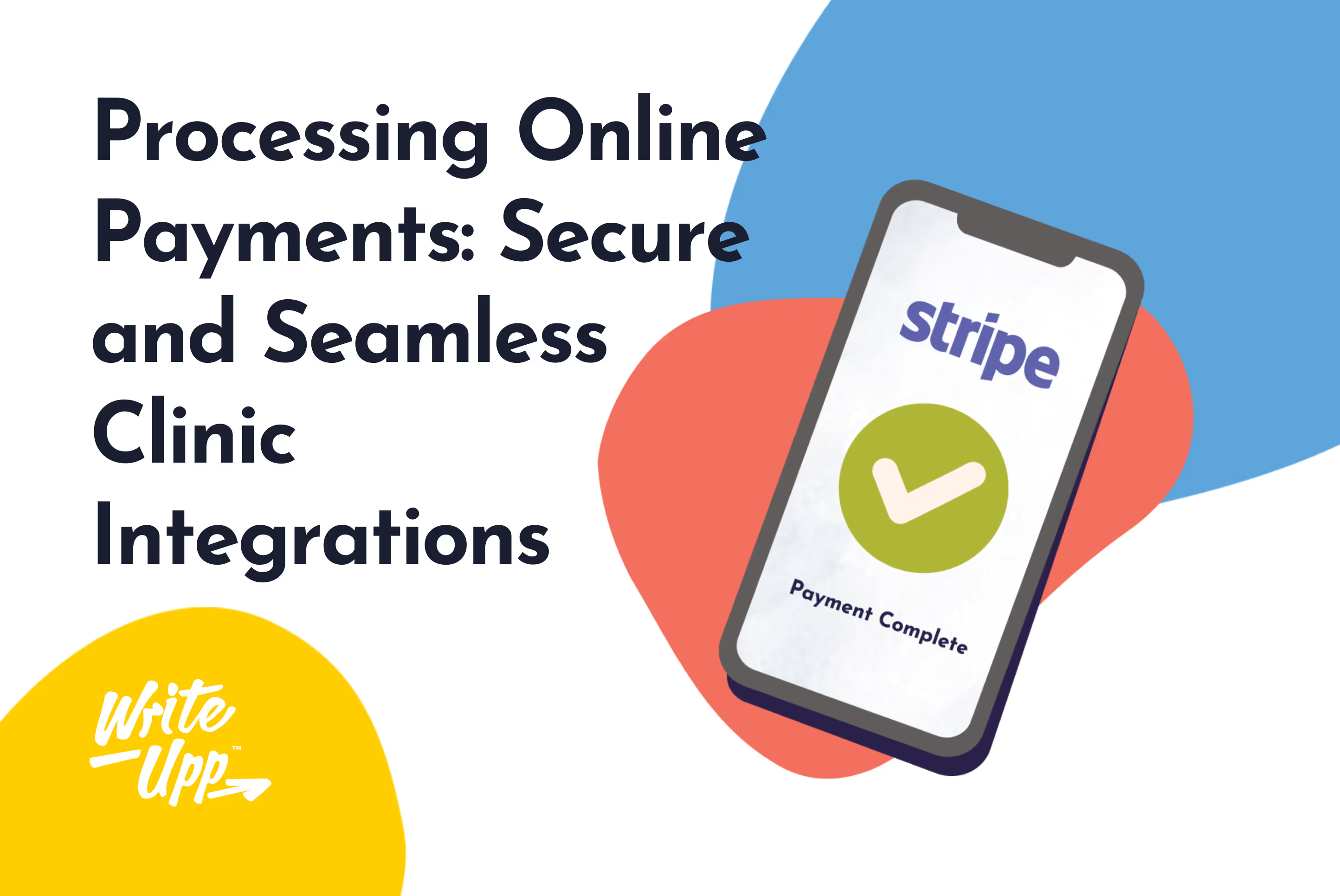Venturing into the world of private counselling is an exhilarating journey, marked by the promise of autonomy, direct impact, and professional growth.
Whether transitioning from a public setting or stepping fresh into the therapeutic realm, the path to establishing your own practice in the UK is brimming with potential. However, alongside the excitement comes the responsibility of ensuring that every step you take is well-informed and compliant.
This article will serve as your compass, guiding you through the intricate landscape of setup essentials. From administrative nuances to ethical considerations, we've got you covered, ensuring your launch is both seamless and successful.
If you’re serious about starting your own practice, make sure to download your free eBook: How to Start a Private Healthcare Practice in the UK

What is a Private Counselling Practice?
A private counselling practice is an independent therapeutic service a qualified counsellor provides, offering a confidential space for clients to address personal challenges. Such practices enable a personalised therapy approach, allowing clients to select therapists based on their specific needs. These counsellors may specialise in anxiety, relationships, or addiction, guiding clients with tailored strategies and tools.
A significant benefit of this setup is flexibility, letting counsellors dictate their schedules, ensuring better work-life balance and accommodating clients outside standard hours. You must possess appropriate counselling qualifications and relevant experience in the UK to establish a private practice. Additionally, considering the business side is vital, including decisions about operating as a sole trader or a limited company and understanding the associated legalities.
Integrating a practice management system assists in handling admin, letting therapists concentrate on client care. A well-managed private counselling practice offers a rewarding career, aiding individuals in their therapeutic journeys.
Understanding the Challenges of Running a Practice
Managing a private counselling practice involves not just therapeutic work but also handling business aspects. Therapists must balance roles as caregivers and business owners, managing healthcare marketing, client acquisition, and healthcare finances and ensuring legal and ethical standards.
Building and maintaining a robust client base in a competitive field demands a strategic marketing plan, leveraging various channels and establishing referral networks. Flexibility in scheduling brings challenges, with therapists needing to balance client needs, administrative tasks, and personal self-care.
Upholding professionalism requires continuous adherence to ethical guidelines, staying updated with recent therapy techniques, and regular CPD training. While demanding, a well-managed private practice offers therapists both professional and personal fulfilment.
Formulate a Business Plan
Starting a private counselling practice in the UK necessitates a robust business plan as a blueprint for success. This plan should:
- Define Your Practice: Detail your services, specialisations, unique selling points, and target market.
- Marketing Plan: Decide strategies to reach clients, including digital presence and networking.
- Financial Plan: Project income and expenses, including setup costs and fee structures.
- Legal Requirements: Understand regulations for a counselling practice, including business structures and data protection.
- Professional Development: Plan for skill enhancement and join professional bodies for updates and standards.
- Practice Management: Address appointment handling, client note security, and potential software solutions.
- Risk Management: Ensure you have appropriate insurance and meet the criteria for insurance panels.
Regularly update your plan as your practice evolves, ensuring you remain competitive and aligned with industry shifts.
Make Decisions About Office Space and Logistics
Setting up your private counselling practice involves making key decisions about office space and logistics to foster a suitable client environment. If you want to offer face-to-face counselling instead of online, consider these key points:
- Location: Choose an accessible location for you and your clients, considering parking, public transport, and the demographics of your target market.
- Layout and Design: Opt for a quiet, comfortable space that ensures confidentiality and professionalism, with a private waiting area and counselling room.
- Infrastructure: Ensure necessary facilities are available, including reliable internet, phone lines, and appropriate lighting.
- Administration and Client Management: Adopt practice management software for scheduling and managing appointments.
- Financial Implications: Assess the costs of renting or leasing, ensuring it fits your budget, especially when starting out. Consider shared or sublet spaces initially.
- Personal Resonance: Choose a space that feels right for you and aligns with your therapeutic style.
Set Clear Policies
Establishing clear policies is vital for a private counselling practice to ensure mutual understanding between you and your clients. Key policies include:
- Confidentiality: Outline your commitment and the legal limits.
- Fees and Payment: Communicate rates, included services, and cancellation rules.
- Appointment Scheduling: Specify booking methods, availability, and office hours.
- Cancellation and No-shows: Detail notice periods and any related no-show fees.
- Ethics and Conduct: Commit to professional ethical guidelines and a non-discriminatory environment.
- Data Protection: Describe how client data is managed, stored, and protected in line with regulations like GDPR.
- Boundary-setting: Define counsellor-client boundaries, particularly outside sessions.
Ensure policies are communicated at the outset, accessible (e.g., on your website), and regularly updated to stay current with best practices and legalities.
Network with Other Therapists
Networking is pivotal for private therapists, offering collaboration chances, professional growth, and a broader client base. Here's how to effectively network:
- Join professional groups: These often host events, allowing knowledge exchange and partnerships.
- Participate in conferences: Engage actively, be approachable, and capitalise on networking breaks.
- Leverage social media: Join therapist communities online, engage in discussions, and establish your professional presence.
- Seek supervision or consultation: Enhance skills while tapping into established industry networks for potential referrals.
- Join peer support groups: Share challenges, get advice, and forge connections.
- Collaborate: Work on joint projects or research, amplifying your expertise and creating meaningful relationships.
Active networking solidifies your position in the counselling community, benefiting both your practice and clientele.
Market Your Business
Marketing is vital for establishing a private counselling practice in the UK. Here are key strategies:
- Craft a marketing plan: Outline goals, target audience, messages, and outreach strategies.
- Define your ideal client: Understand their needs to tailor your messaging.
- Establish an online presence: Create a professional website, share insights through blogs, and engage on social media.
- Network with referral sources: Connect with professionals like GPs, psychiatrists, and schools to gain referrals.
- Register on online directories: Appear on counselling-specific directories and encourage client reviews.
- Host introductory events: Offer discounted therapy sessions or workshops to showcase your expertise.
- Design marketing materials: Distribute brochures, flyers, and business cards in strategic locations.
- Monitor and refine your efforts: Use analytics to assess strategy effectiveness and adjust as needed.
Consistency, adaptability, and ongoing evaluation are key to successful marketing in the counselling field.
Understanding Private Practice Legal Requirements
In the UK, therapists setting up a private counselling practice must be well-versed in legal requirements. Key steps include:
- Obtaining recognised counselling qualifications and securing accreditation from bodies like the BACP or UKCP.
- Adhering to ethical guidelines and professional codes encompasses client confidentiality, boundaries, and ongoing professional development.
- Complying with GDPR for data protection and ensuring informed client consent regarding data management.
- Drafting a comprehensive counselling contract detailing the therapeutic approach, fees, and other key terms. Seeking legal advice for this is advisable.
- Procuring necessary business insurance for clinicians, including professional indemnity.
By fulfilling these legal obligations, therapists ensure a safe, trustworthy practice safeguarding clients and their professional reputation.
Comply with the Equality Act (2010)
Adherence to the Equality Act (2010) is vital for UK therapists starting a private counselling practice. This law promotes equality across sectors, including therapy, by prohibiting discrimination based on age, race, gender, and more. To comply:
- Therapists should accommodate clients with disabilities, ensuring accessible facilities and flexible communication methods.
- Use inclusive language, be mindful of cultural differences and avoid discriminatory terms.
- Be vigilant against unconscious bias, treating clients without assumptions based on their background.
- Emphasise diversity in hiring and professional development, fostering an inclusive workspace.
Be aware of the legal limits to confidentiality
Confidentiality is fundamental in counselling to build trust, but legal and ethical limits exist.
Therapists might breach confidentiality if there's a risk of serious harm to the client or others, child protection issues, or terrorism-related situations. Legal mandates, such as court orders, can also require disclosure.
Clients should be informed early on about these limits, often via consent forms or therapy intake questions. Additionally, therapists must securely store client records, adhering to data protection laws like GDPR (use a good practice management software for this).
Comply with any legal orders relating to your client's notes
Therapists must handle client records following legal and ethical standards. If court orders demand client note disclosure, consult a legal expert for guidance.
Maintain secure storage for client records using practice management software and have clear policies on legal order compliance. Although challenging, therapists must balance client trust with legal responsibilities.
Comply with the Data Protection Act (2018)
To safeguard client information, private counselling practitioners must adhere to the Data Protection Act (2018).
Practice management software like WriteUpp is ISO27001 certified, a globally recognised information governance and security standard. This means you can confidently protect your patient data, knowing you comply with the Data Protection Act.
Clients have the right to access, correct, or erase their data, facilitating timely responses to such requests. Only retain data as necessary and dispose of it securely.
Stay updated with guidance from the Information Commissioner's Office (ICO) to ensure compliance and maintain client trust.
Ensure your clients have the capacity to give informed consent
Ensuring clients can give informed consent is essential in your private counselling practice. This ethical principle means clients understand and voluntarily agree to treatment conditions.
To maintain trust, verify clients can make autonomous decisions and assess their mental capacity considerately. Evaluate factors like age, mental health, cognition, and external influences. If a client's capacity needs to be improved, consult with healthcare professionals.
Continuously reassess consent throughout therapy, addressing client queries and providing clear information. Document the consent process, capture the client's understanding, and discuss risks and benefits. Upholding informed consent respects client autonomy and fosters a trustful therapeutic relationship.
Use the UK's Most Popular Counselling Practice Management Software
Practice management software like WriteUpp is not only user-friendly and cost-effective but also paves the way for online client appointments, minimised administrative hassles, and an enhanced client journey.
It’s designed to declutter your admin tasks, empowering you to focus on nurturing your counselling practice and catering to your clients' needs.
With just a few clicks, you can access a ton of features, including:
- Round-the-clock online client appointment scheduling
- Eradicating repetitive & time-consuming tasks
- Insights into your business's financial health
- Eliminating paper
- Improving your client’s experience
- Simplifying your compliance with key regulations like GDPR
- Reducing the threat of virus transmission
You can grab us for a live chat if you have any questions about what an integrated practice management solution can do for you and your practice.
The button is just there in the bottom right corner of your screen.



Join over 50,000 clinicians that we've helped using WriteUpp
Start my free trial






